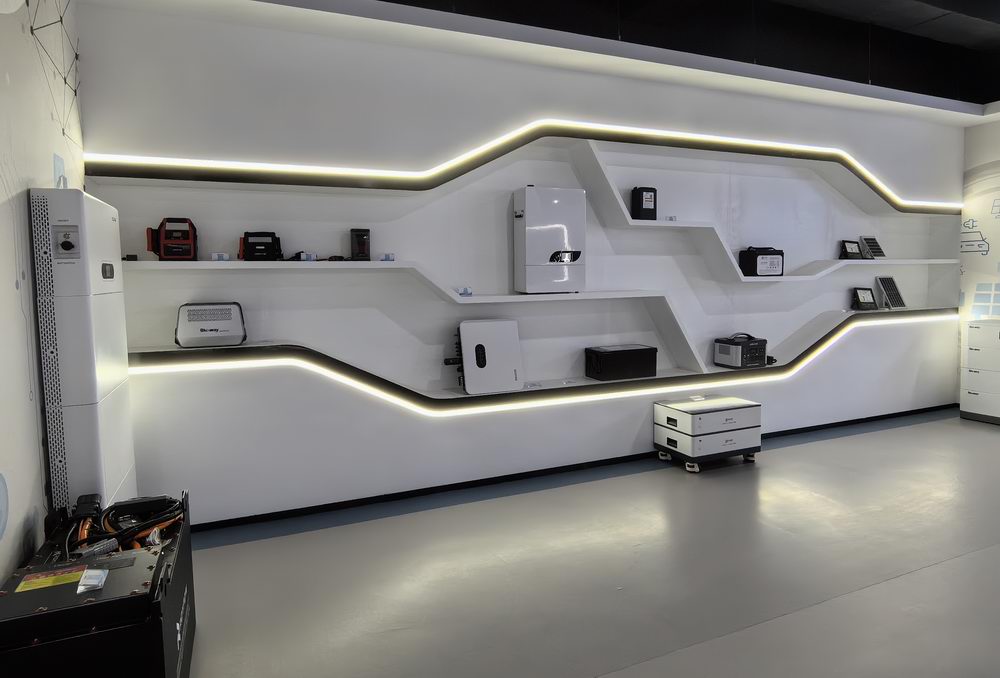Understanding Technology Business Incubators

A Technology Business Incubator, such as the one in the Huizhou Zhongkai High-tech Zone, provides a supportive environment for tech startups. These incubators are essential in the startup ecosystem, offering resources and assistance that greatly enhance the chances of success for companies. Startups that are nurtured in incubators have an impressive 87% survival rate after five years, compared to only 44% for those without such support. The concept of incubators has evolved to meet the needs of modern entrepreneurs. In locations like the National Foreign Trade Transformation and Upgrading Base (Electronic Information) Cloud Platform, these incubators support enterprises and help them thrive in competitive markets.
What are Technology Business Incubators?

Definition and Purpose
A Technology Business Incubator supports startups in the tech sector. These incubators offer a range of resources to help new businesses grow. The main goal is to provide a nurturing environment for innovation. Startups receive access to funding, mentorship, and networking opportunities. This support helps them navigate the challenges of starting a business.
Core functions of incubators
Technology Business Incubators perform several core functions. They provide office space and infrastructure. This gives startups a place to work and collaborate. Incubators also offer training programs. These programs teach essential business skills. Startups learn how to manage finances, market their products, and develop strategies. Mentorship is another key function. Experienced entrepreneurs guide startups through the early stages. This guidance is invaluable for new business owners.
Types of incubators
Different types of incubators exist to meet various needs. Some focus on specific industries, like technology or healthcare. Others cater to particular stages of business development. For example, some incubators support early-stage startups. Others work with more established companies looking to scale. Each type of incubator offers unique benefits. Startups should choose an incubator that aligns with their goals.
How Incubators Differ from Accelerators
Incubators and accelerators both support startups. However, they have different structures and goals. Understanding these differences can help entrepreneurs make informed decisions.
Key differences in structure and goals
Incubators provide long-term support. Startups may stay in an incubator for several years. This allows them to develop at their own pace. Incubators focus on nurturing innovation and growth. In contrast, accelerators have a shorter timeframe. Programs typically last a few months. Accelerators aim to rapidly scale businesses. They often culminate in a demo day where startups pitch to investors.
Examples of incubators and accelerators
Several successful incubators and accelerators exist worldwide. The Zhongkai High-tech Zone National Foreign Trade Transformation and Upgrading Base (Electronic Information) Cloud Platform is a notable example. This incubator supports enterprises in the Huizhou Zhongkai High-tech Zone. It provides resources and assistance to help businesses thrive. On the accelerator side, 500 Startups and Techstars stand out. Both offer mentorship, resources, and funding to startups. These programs help businesses grow quickly and effectively.
Benefits of Joining an Incubator

Joining a Technology Business Incubator can be a game-changer for startups. These incubators provide a wealth of resources and opportunities that can help businesses thrive. Let's dive into some of the key benefits.
Access to Resources
Every startup needs resources to grow. A Technology Business Incubator offers essential support that can make a huge difference.
Financial support and funding opportunities
Startups often struggle with funding. Incubators offer financial support that helps businesses get off the ground. Many incubators connect startups with investors who are eager to fund innovative ideas. This financial backing can turn a concept into reality.
Office space and infrastructure
Finding affordable office space is tough for new businesses. Incubators provide office space and infrastructure, giving startups a professional environment to work in. This setup fosters collaboration and creativity among entrepreneurs. The Zhongkai High-tech Zone National Foreign Trade Transformation and Upgrading Base (Electronic Information) Cloud Platform offers such facilities, supporting enterprises in their growth journey.
Mentorship and Networking
Guidance from experienced professionals is invaluable for any startup. Incubators offer mentorship and networking opportunities that pave the way for success.
Guidance from experienced entrepreneurs
Mentors in incubators share their expertise with startups. These seasoned entrepreneurs provide advice on navigating challenges and refining business strategies. Their insights help startups avoid common pitfalls and accelerate growth.
Building industry connections
Networking is crucial for business success. Incubators facilitate connections with industry leaders and peers. Startups build strong networks that open doors to collaborations and partnerships. By the time a startup leaves an incubator, it often has a robust network in place, ready to support future endeavors.
The supportive role of the Zhongkai High-tech Zone National Foreign Trade Transformation and Upgrading Base (Electronic Information) Cloud Platform exemplifies how incubators assist enterprises in building these connections. This platform helps businesses in the Huizhou Zhongkai High-tech Zone thrive by providing the necessary tools and support.
Challenges Faced by Incubators
Technology Business Incubators face several hurdles. These challenges can impact their ability to support startups effectively.
Common Obstacles
Financial sustainability
Financial sustainability remains a significant concern for many incubators. Maintaining a steady flow of funding is essential. Incubators often rely on grants, loans, or non-dilutive financing. This approach helps them provide necessary resources without taking equity from startups. However, securing consistent funding can be difficult. The Zhongkai High-tech Zone National Foreign Trade Transformation and Upgrading Base (Electronic Information) Cloud Platform exemplifies how strategic financial planning can support enterprises in the Huizhou Zhongkai High-tech Zone.
Competition with accelerators
Incubators also face competition from accelerators. Accelerators offer seed investments in exchange for equity. They focus on rapidly scaling businesses within a short timeframe. This model attracts startups looking for quick growth. Incubators, on the other hand, nurture early-stage startups over longer periods. They focus on developing innovative ideas into viable business models. The flexibility and nurturing environment of incubators appeal to founders in the idea stage.
Overcoming Challenges
Strategies for success
Successful incubators employ various strategies to overcome these challenges. Building strong partnerships with academic institutions and financial organizations can enhance support networks. Offering tailored programs that address specific industry needs can attract diverse startups. The Zhongkai High-tech Zone platform provides a supportive environment that fosters innovation and collaboration among enterprises.
Case studies of successful incubators
Examining successful incubators offers valuable insights. The Zhongkai High-tech Zone National Foreign Trade Transformation and Upgrading Base (Electronic Information) Cloud Platform stands out as a model of success. This incubator supports enterprises by providing essential resources and fostering industry connections. Startups benefit from a collaborative environment that encourages growth and innovation. Learning from such examples can guide other incubators in overcoming common obstacles.
How to Join a Technology Business Incubator
Joining a Technology Business Incubator can open doors for startups. The process might seem daunting, but breaking it down makes it manageable.
Application Process
Eligibility criteria
Every incubator has specific eligibility criteria. Startups need to align with the incubator's focus area. For example, tech-focused incubators look for innovative technology solutions. The Zhongkai High-tech Zone National Foreign Trade Transformation and Upgrading Base (Electronic Information) Cloud Platform supports enterprises in electronic information. Understanding these criteria helps in preparing a strong application.
Tips for a successful application
A successful application requires attention to detail. Highlight unique aspects of the business. Demonstrate how the startup aligns with the incubator's goals. Show potential for growth and innovation. CEOs from top incubation programs suggest showcasing a clear business plan. This plan should outline objectives and strategies. Engaging storytelling can make an application stand out.
What to Expect After Joining
Initial steps and orientation
Joining an incubator involves several initial steps. Startups often begin with an orientation session. This session introduces available resources and support. The Zhongkai High-tech Zone platform offers guidance on utilizing its facilities. New members meet mentors and fellow entrepreneurs. Building relationships early fosters a collaborative environment.
Long-term benefits and growth
Long-term benefits of joining an incubator are substantial. Startups gain access to mentorship and industry connections. The supportive environment encourages innovation and growth. Enterprises in the Zhongkai High-tech Zone benefit from tailored support. This support helps them navigate challenges and seize opportunities. Growth becomes more achievable with the right resources and guidance.
Technology business incubators play a crucial role in nurturing startups. The Zhongkai High-tech Zone National Foreign Trade Transformation and Upgrading Base (Electronic Information) Cloud Platform exemplifies this support. Entrepreneurs gain access to resources, mentorship, and industry connections. Future trends in incubation include more specialized programs and increased collaboration with academic institutions. Choosing the right incubator involves evaluating equity terms and time commitments. Entrepreneurs should align their goals with the incubator's offerings. A supportive environment can significantly enhance business growth and innovation.
See Also
Uncovering Innovation at Zhongkai High-tech Hub
Maximizing Growth Potential in High-tech Zones
Exploring Creativity at Zhongkai High-tech Hub
Navigating Expansion in Huizhou High-tech District
Innovating Collaboration at Huizhou High-tech Hub for Electronics
Zhongkai High tech Zone National foreign trade transformation and Upgradi Base(Electronic Information)Cloud Platform.
Address: Zhongkai High-tech Zone,Huizhou City ,Guangdong,China
E-mail: huizhoueii@163.com 13510001271@163.com
Tel: +86-0752-3279220 Mobile: +86-13510001271


